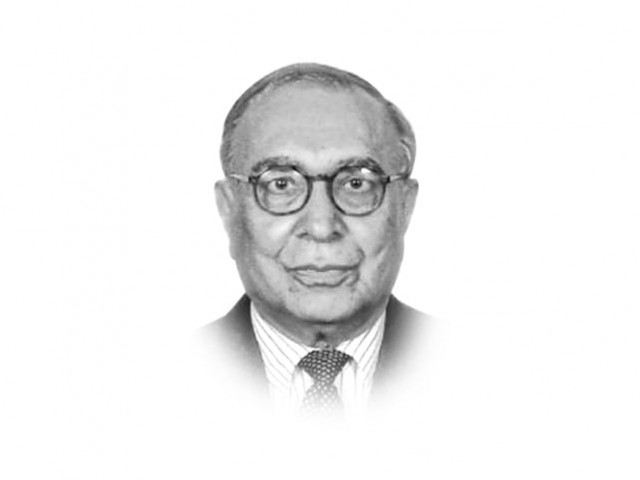A silver lining
Pakistan needs a break from the dynamics created by the NRO, can come only from a new election; earlier the better.

Pakistan is a multi-ethnic, multilingual and pluralistic nation state. Democracy alone establishes forums for mediating different interests, viewpoints and perspectives. The great hope generated by the last general election stands shattered. Without an early election that brings forth a credible and robust parliament, the state will be further hollowed out and may just collapse or go under an authoritarian dispensation. Ruled by non-democratic regimes for half of its history and by severely constrained elected governments for the other half, Pakistan has seen the present parliament getting progressively debilitated by some extraordinary problems that accompanied its birth. None of the parties present in it rose to the challenge of finding a comprehensive solution for those problems.
The context in which this parliament was born needs only a brief recapitulation. General Pervez Musharraf’s dictatorship reached a dead end and lost all legitimacy. He reached out to the United States in early 2007 for help with bridging his differences with the exiled Shaheed Benazir Bhutto. Condoleezza Rice’s memoir No Higher Honour (Random House, 2011) documents the process launched by the request that General Musharraf had made to get a new lease on life. Facing mounting difficulties in the war on terror because of the Taliban’s resurgence in Afghanistan, Washington signed on. “It seemed a long shot,” Rice writes, “but if the two rivals could come to a power-sharing arrangement, it would shift the weight of politics towards the moderates and undermine the Islamists, as well as Nawaz Sharif ... suspected of maintaining close ties to the militants”. Therein lies the raison d’être of this parliament.
Benazir Bhutto’s tragic assassination led to unintended consequences, the foremost being the totally unforeseen ascendance of President Asif Ali Zardari to near-absolute power. There are no judgments of superior courts to settle the issues concerning Mr Zardari definitively but, rightly or wrongly, he would be the inevitable rallying point for the opposition’s campaign to destroy the ill-conceived National Reconciliation Order. President Zardari had other choices but he chose to direct all the energies of the government and parliament towards building an impregnable Great Wall around him.
Good governance was an obvious victim of this decision. It also skewed the work of parliament. Max Weber once wrote: “In a modern state, the actual ruler is necessarily and unavoidably the bureaucracy, since power is exercised neither through parliamentary speeches nor monarchical enunciations but through the routine of administration.” This has not worked well in Pakistan and the situation has corresponded more to the observation made by Patrick Kennon in his book The Twilight of Democracy (Common Courage Press, 2004): “{The} primary aim of the third world bureaucracy is to supply ‘opportunities’ for cronies of the powerful and jobs for the politically faithful”. President Zardari learnt the art of bending the bureaucracy to his will a long time ago. Now, he made his own defence the main business of parliament and that, too, by creating strange coalitions through Faustian bargains. Admittedly, parliament has enacted commendable legislation to reduce the mess left behind by General Musharraf’s dictatorship but it has mostly remained hobbled by the war against and by the Head of State.
The current tussle with the Supreme Court is the nadir of the executive’s struggle to remain unshackled by rules and conventions. A similar and equally gratuitous contest with the armed forces has also weakened the state. In the popular perception, the current impasse is between a rapacious group of politicians who want unbridled freedom for arbitrary actions and institutions upholding the rule of law and the supremacy of the Constitution. It has pushed them all into a blind alley. The only way out of it is a new general election that enables all the parties to make a fresh effort to return to the democratic framework envisioned by Pakistan’s founding fathers. Pakistan needs a clean break from the dynamics created by the NRO. This can come only from a new election; the earlier, the better.
Published in The Express Tribune, July 16th, 2012.














COMMENTS
Comments are moderated and generally will be posted if they are on-topic and not abusive.
For more information, please see our Comments FAQ